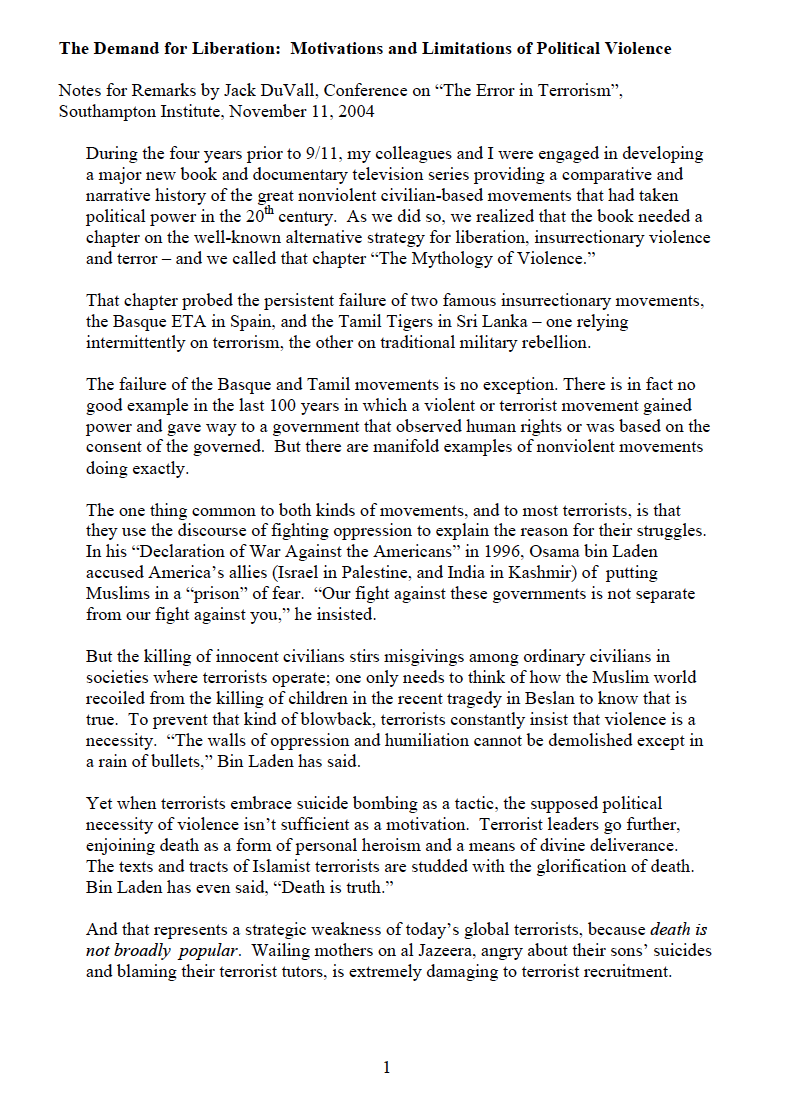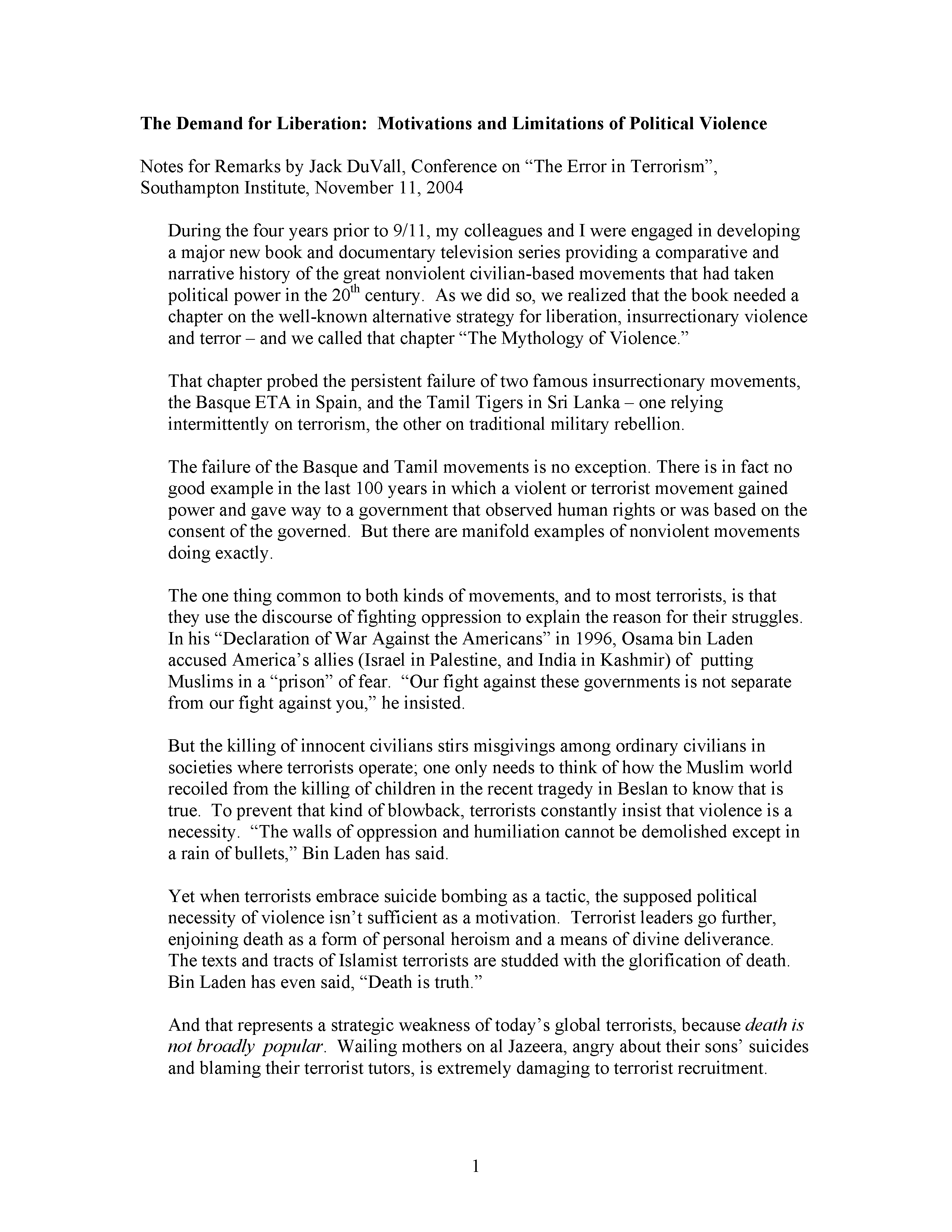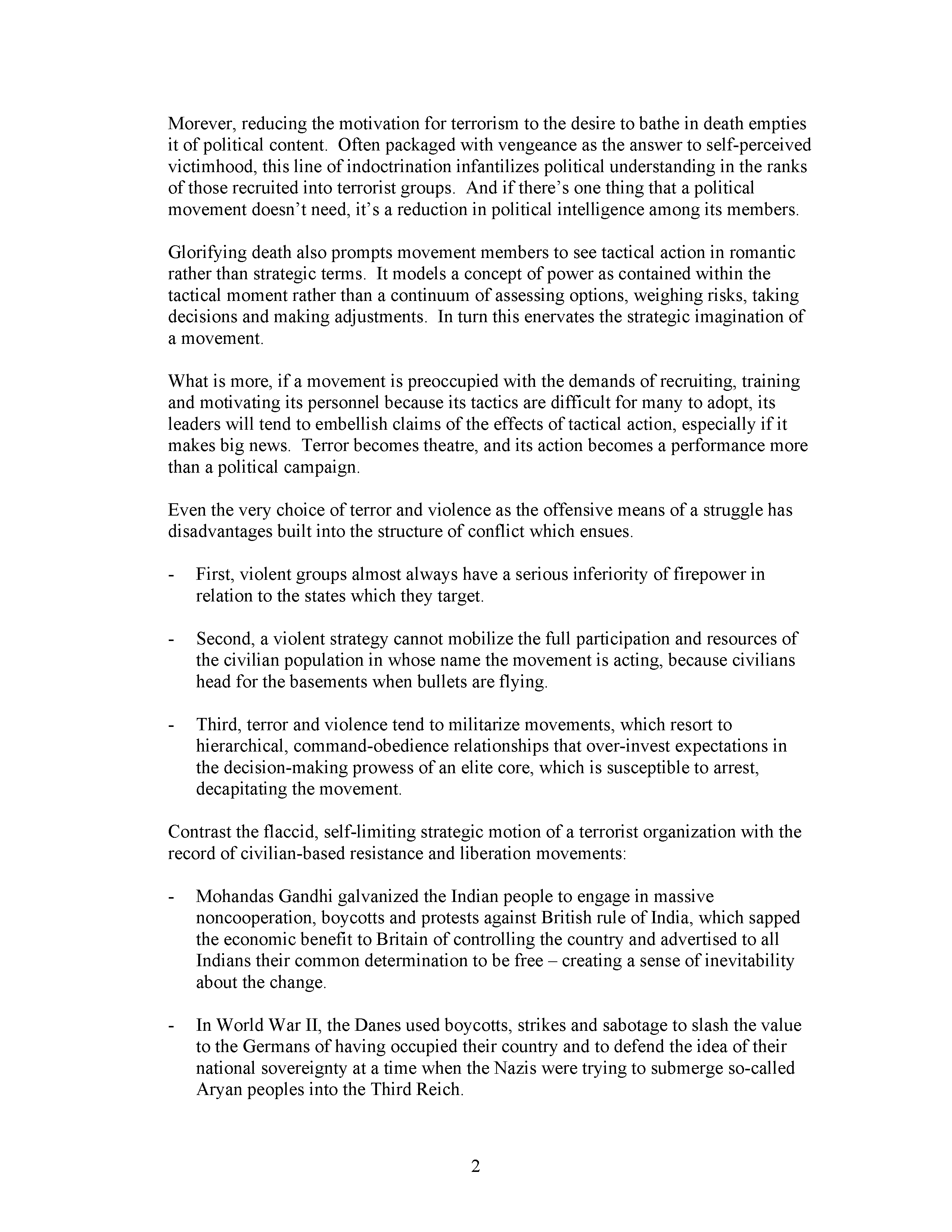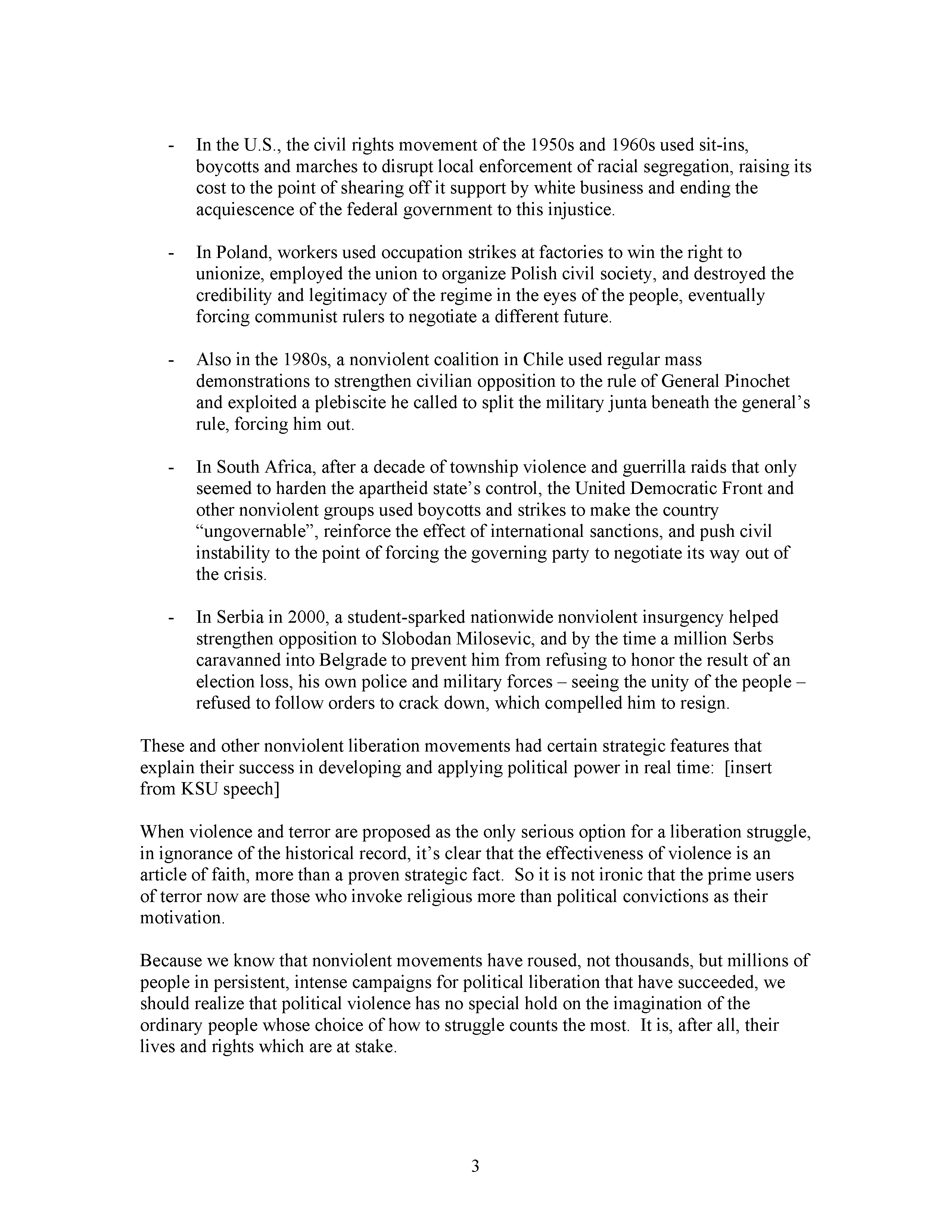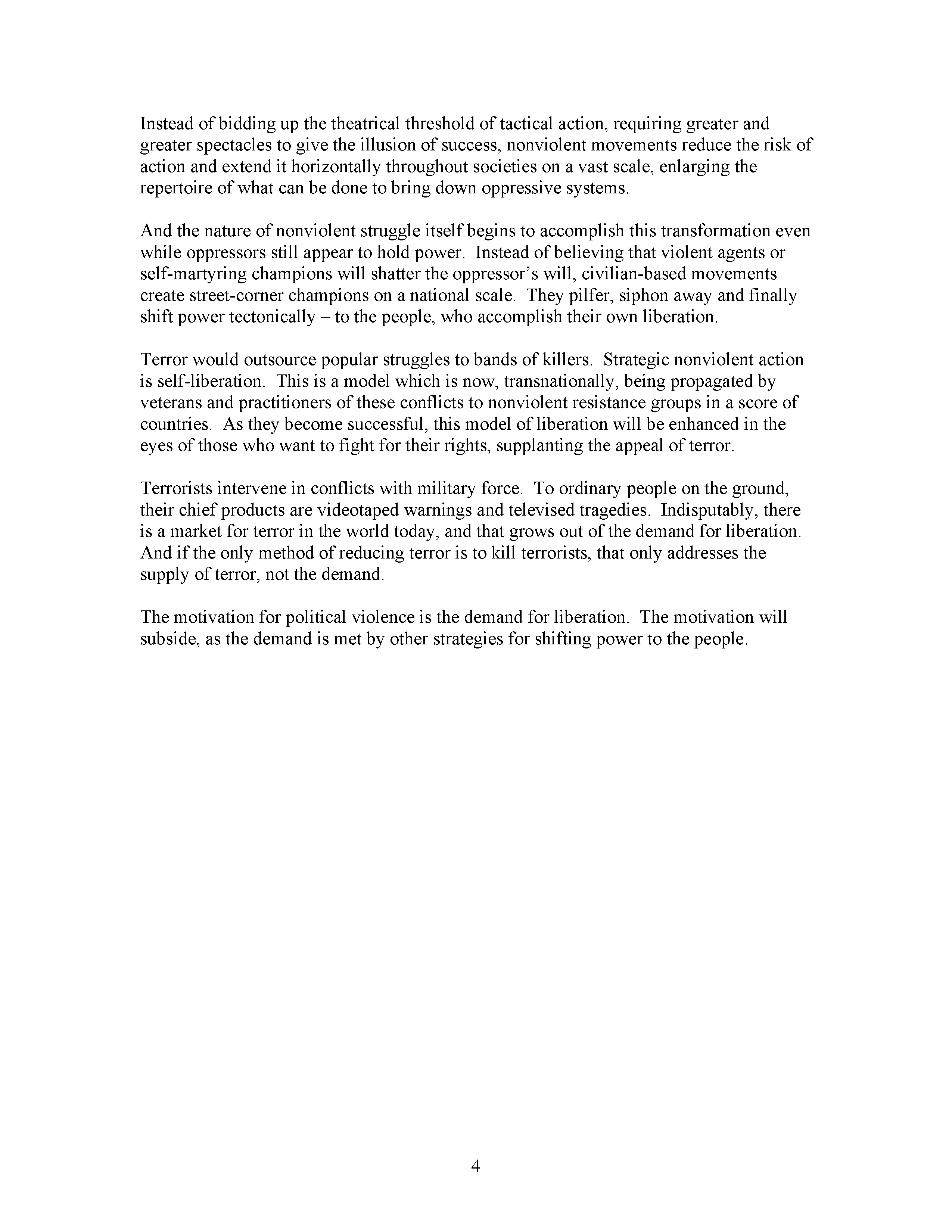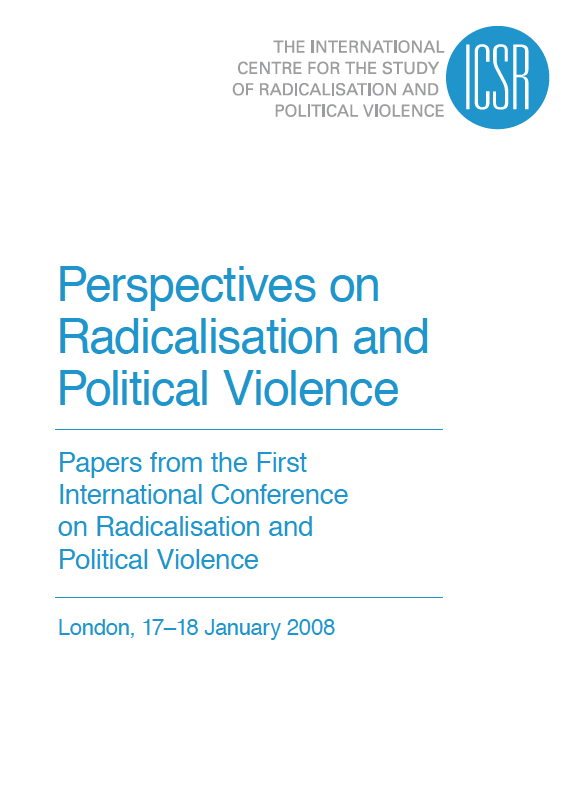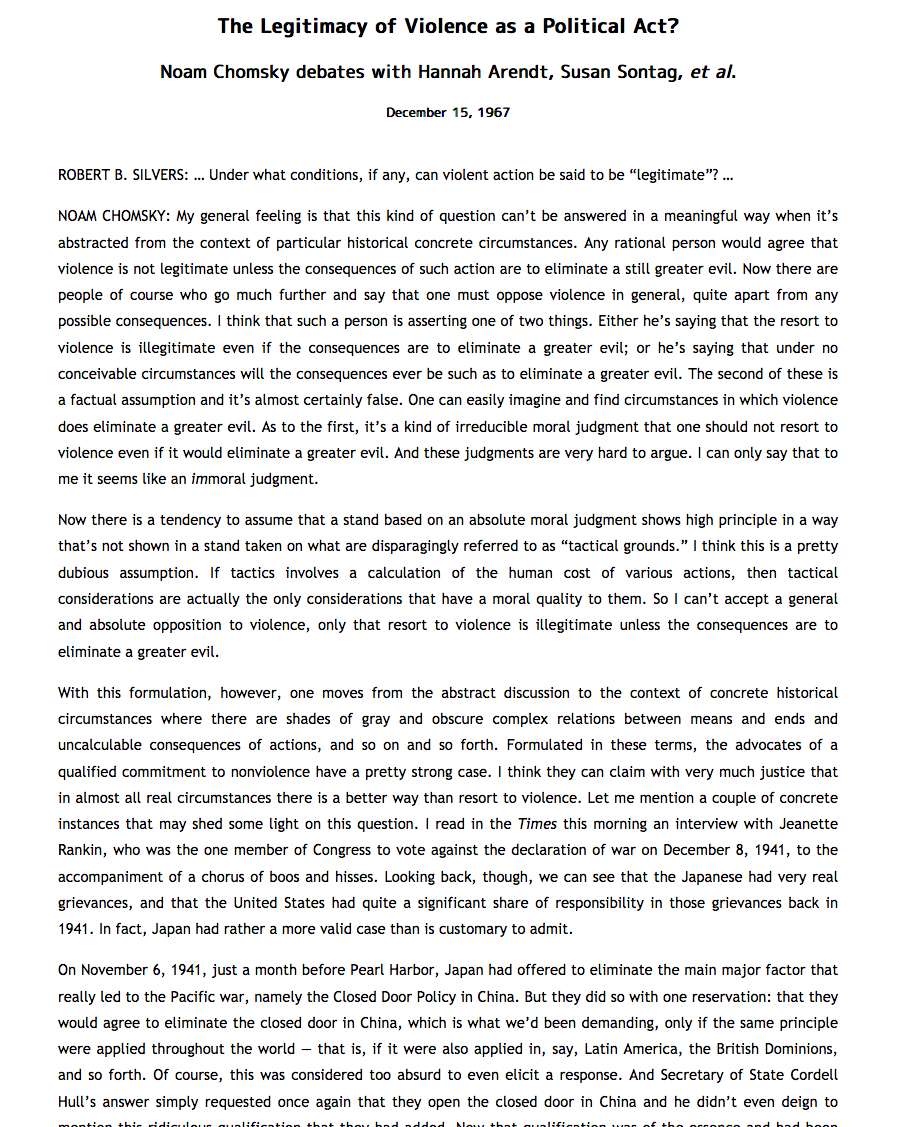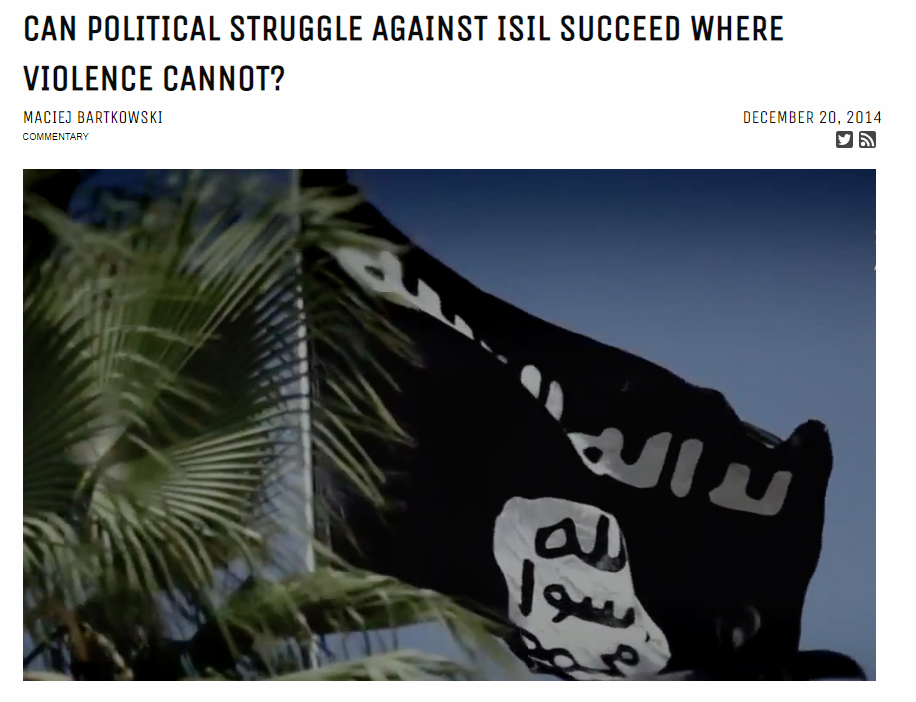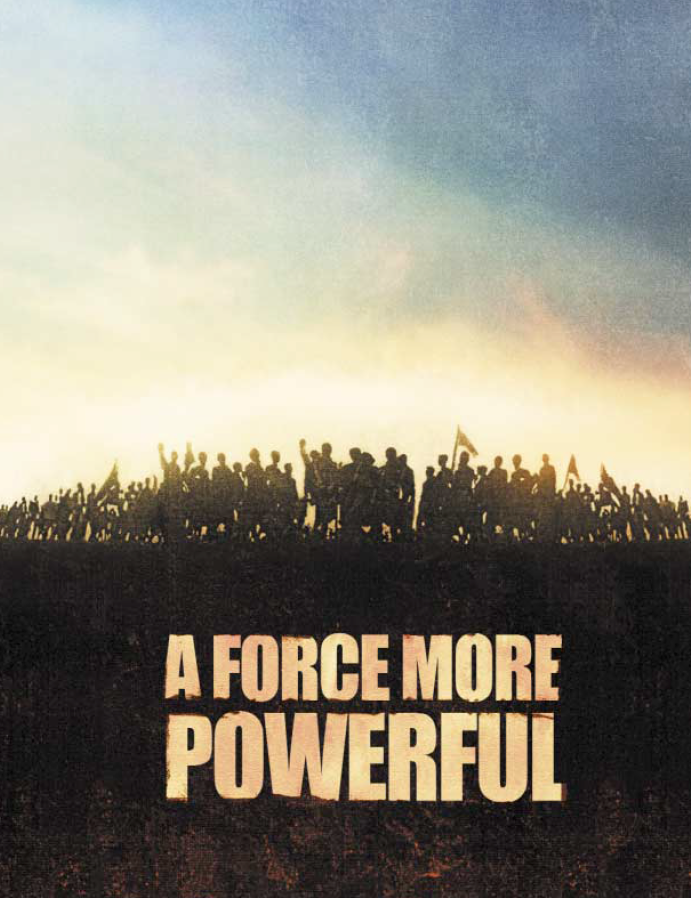The Demand for Liberation: Motivations and Limitations of Political Violence
Compares and contrasts nonviolent and violent resistance movements, concentrating on the relative flexibility of tactics and strategy within nonviolent movements and the myriad reasons that violent terrorist movements are unsuccessful because of their chosen methods.
Presented at the Southampton Institute, 2004
Remarks delivered during the conference “The Error in “Terrorism”
Southampton Institute, November 11-12, 2004
